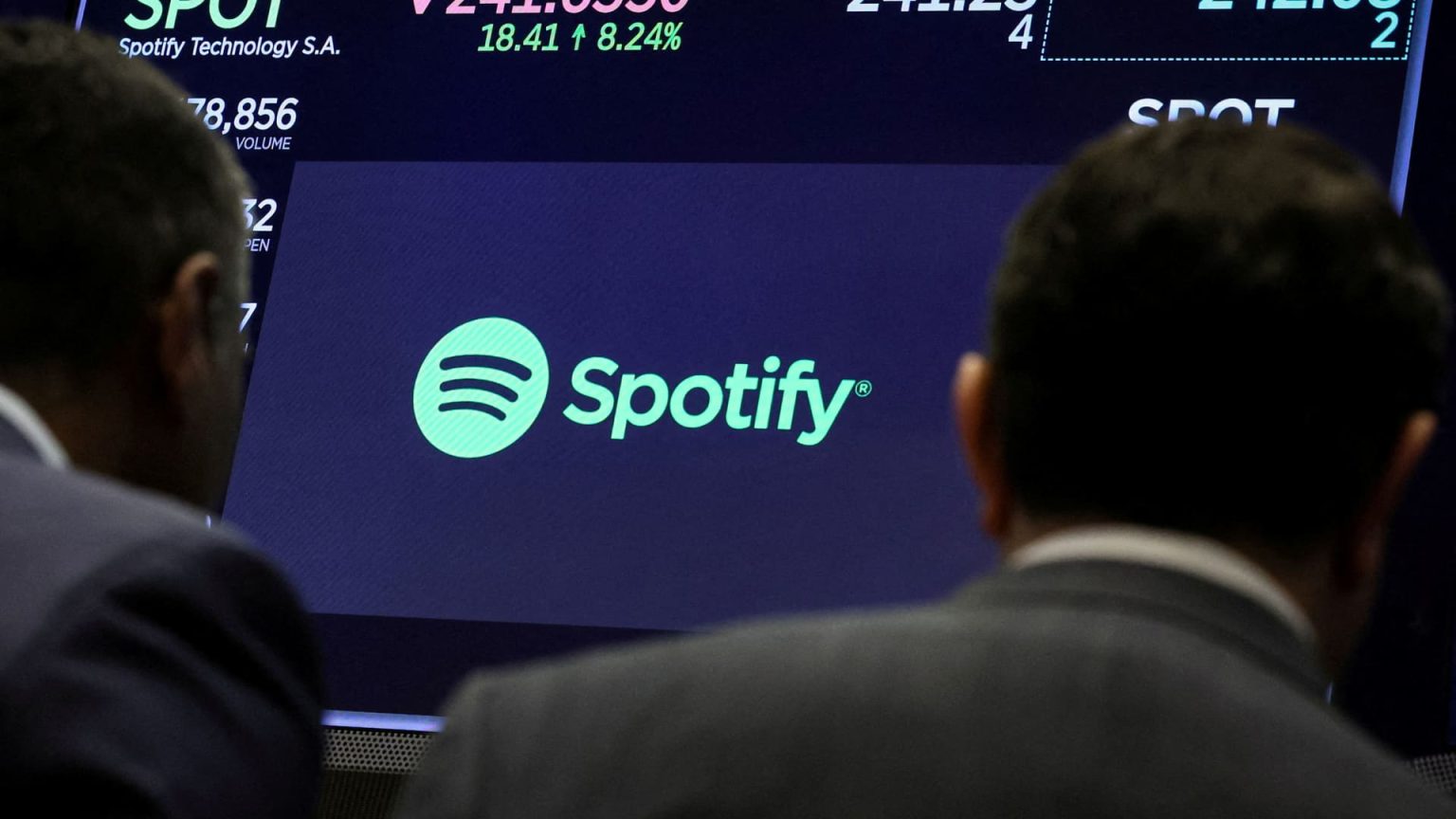In a volatile trading landscape, several companies have captured the market’s attention due to fluctuating stock performances influenced by their quarterly earnings reports. Spotify, General Motors, and Pfizer are among the notable names experiencing shifts in stock value, prompting discussions about their financial outlooks and market strategies. With varied results across different sectors, the reactions of investors reflect a complex economic backdrop shaped by external factors like tariffs and shifting consumer demand.
| Article Subheadings |
|---|
| 1) Spotify’s Earnings Pressure |
| 2) General Motors Considers Revisions |
| 3) Pfizer’s Cost-Cutting Strategy |
| 4) Mixed Results for Royal Caribbean |
| 5) Performance Highlights for Biotech Firms |
Spotify’s Earnings Pressure
Spotify, the renowned music streaming service, reported a first-quarter operating income of 509 million euros. Although this figure aligns closely with market predictions, it fell short of the analysts’ expectations of 519.9 million euros. This financial discrepancy has led to a decline in Spotify’s stock by 3.8%. The company’s revenue, reported at 4.2 billion euros, met projections, while its number of monthly active users hit 678 million, consistent with company guidance.
The underperformance in operational income raises questions about Spotify’s future strategies, especially as the competition in the streaming market intensifies. Notably, despite the challenges, Spotify is managing to maintain user growth, and analysts suggest that it may need to reevaluate its pricing strategies and content offerings in order to enhance profitability.
General Motors Considers Revisions
General Motors announced its intention to reassess its full-year outlook, which contributed to a 2% decrease in its share price. The automotive company cited concerns over rising tariffs and broader macroeconomic uncertainty as primary factors contributing to its cautious stance. Although GM reported better-than-expected earnings for the first quarter, the company’s hesitation to affirm its long-term projections overshadowed positive news.
The potential impact of tariffs on production costs and pricing strategies is especially significant in the current economic environment. General Motors’ leadership must navigate this challenging landscape carefully to maintain investor confidence and ensure that operational efficiency remains a priority amid fluctuating market conditions.
Pfizer’s Cost-Cutting Strategy
Pfizer’s stock experienced an increase of 3% following the pharmaceutical giant’s announcement of expanded cost-cutting measures. The first-quarter profits surpassed Wall Street expectations, yet the company is facing declining sales attributed to diminishing demand for its Covid vaccine. Despite holding its 2025 guidance steady, Pfizer acknowledged uncertainty regarding how tariffs might affect future operations, raising concerns about ongoing revenue streams.
The broader health sector is witnessing fluctuating interest given the pandemic’s evolving status. Pfizer’s strategy to manage costs appears critical, as the company aims to cushion itself against revenue volatility in its vaccine division while exploring new product lines to maintain growth.
Mixed Results for Royal Caribbean
Royal Caribbean’s shares dipped nearly 2% after the cruise operator reported mixed results for its first-quarter performance. Adjusted earnings reached $2.71 per share, which was higher than analysts’ expectations of $2.55. However, revenue figures came in at $4 billion, falling short of the $4.01 billion consensus estimate. This mixed evaluation has led investors to reflect on the ongoing recovery of the cruise industry in light of recent events, including health concerns and travel restrictions.
The cruise industry remains in a state of flux, with consumer reservations being influenced by rapidly changing global travel norms. Royal Caribbean’s capacity to sustain growth will heavily depend on its ability to adapt to post-pandemic travel dynamics while ensuring consumer confidence in safety measures.
Performance Highlights for Biotech Firms
Biotech firms saw varied performances this quarter, particularly highlighted by Regeneron’s significant 8.8% drop in shares following an earnings miss and reduced full-year outlook. The company earned an adjusted $8.22 per share against expectations of $8.62 per share, and revenue also fell short of projections. Conversely, SoFi Technologies managed a 1% increase, reporting a first-quarter net revenue of $770.7 million, surpassing expectations, indicating strong ongoing demand for fintech services.
The mixed bag of results among biotech and fintech sectors signals uncertain investor sentiments within these rapidly evolving industries. Companies must strategize effectively to navigate both investor sentiments and market demands to assure ongoing support and growth.
| No. | Key Points |
|---|---|
| 1 | Spotify’s first-quarter operating income of 509 million euros fell short of market expectations. |
| 2 | General Motors announced a reassessment of its full-year outlook amidst tariff concerns. |
| 3 | Pfizer’s stock increased after announcing cost-cutting measures, despite lower vaccine sales. |
| 4 | Royal Caribbean saw a decrease in stock due to mixed first-quarter results, missing revenue estimates. |
| 5 | Biotech and fintech firms reported mixed results, highlighting ongoing uncertainties in their sectors. |
Summary
The recent fluctuations in stock prices among major companies underscore the complex landscape of the current financial market. With economic pressures such as tariffs and shifting consumer preferences influencing outcomes, the responses from companies like Spotify, General Motors, and Pfizer reflect a need for strategic adjustments. As leadership teams navigate uncertain waters, the sustained performance of these firms will heavily depend on their adaptability to prevailing market conditions.
Frequently Asked Questions
Question: What factors influenced Spotify’s recent stock performance?
Spotify’s recent stock decline was primarily driven by its first-quarter operating income falling short of analysts’ expectations, coupled with broader market concerns about growth in the competitive streaming landscape.
Question: Why did General Motors decide to reassess its outlook?
General Motors’ reevaluation of its outlook stems from concerns regarding tariffs and macroeconomic uncertainty, which could directly impact production costs and overall profitability.
Question: How is Pfizer addressing declining sales of its Covid vaccine?
Pfizer is implementing cost-cutting measures and exploring new product lines to mitigate the impact of declining Covid vaccine sales while trying to maintain robust profit margins.


